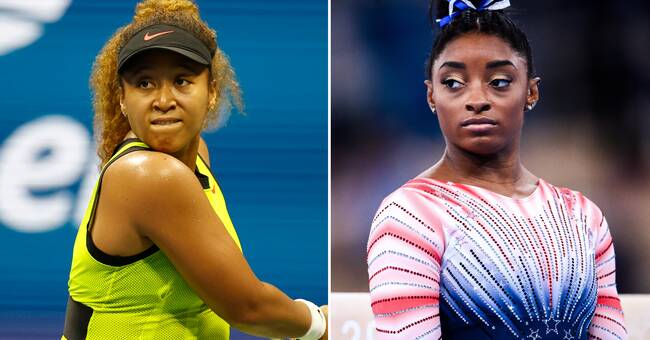The news hit like a bomb when Japanese tennis star Naomi Osaka announced before the French championships this spring that she would not be attending any press conferences during the tournament.
The four-time grand slam winner wrote on Twitter that the decision was made taking into account her mental health.
Osaka's decision was questioned and criticized by the media as well as by organizers and several tennis stars.
But it was also a door opener.
At the Tokyo Olympics a few months later, American gymnastics star Simone Biles chose to break the team competition.
The superstar also told her that it was due to mental illness, and said that she was inspired by Osaka.
And from the Swedish side, the ice hockey goalkeeper Robin Lehner, in the NHL club Vegas, has announced that he is giving up the Olympics in Beijing in February for fear of how the tough restrictions would affect his mood.
How is it then that so many sports stars this year have openly chosen to talk about mental illness?
"The time is right"
- The time is a bit ripe.
Mental illness has probably always existed in elite sports, and there has been an incredibly big stigma - it has not been okay to talk about it anywhere, says sports psychologist Göran Kenttä and continues:
- At the same time, I am a little surprised that it has taken so long.
Osaka is probably actually the first one I know who chooses to step down from a competition at world elite level, and say that the reason is mental illness
Göran Kenttä believes that mental illness in elite sports is not a new phenomenon.
However, the stories have not previously become public in the middle of the active sports career.
- In the past, it has been that in retrospect, when the career has ended, it has been possible to tell about it.
But the fact that you do it in the middle of it all, and even choose to give up competitions due to mental illness, means that you have actually taken it a step further in 2021, he says.
Cecilia Åkesdotter, former World Cup gold medalist in taekwondo who now works as a psychotherapist and sports psychology advisor, is on the same track:
- In the past, the model has really always been that you should shut up if you feel bad, and instead bite together.
Large spread
She sees that there are so many different types of athletes - tennis players, gymnasts, ice hockey players and several stars in American football - who have talked about mental illness.
- I think it is very good that there are different people talking about it, that we get a breadth.
That it is not only aesthetic athletes who go out and talk about it, they have a certain problem within those sports;
assessment sports where you wear smaller clothes, which can increase the risk of, for example, eating disorders.
60 SECONDS: Osaka's battle in the spotlight (19 August 2021)
Javascript is disabled
Javascript must be turned on to play video
Read more about browser support
The browser is not supported
SVT does not support playback in your browser.
We therefore recommend that you switch to a different browser.
Read more about browser support
60 seconds: Naomi Osaka's fight in the spotlight Photo: TT News Agency / Screenshot

